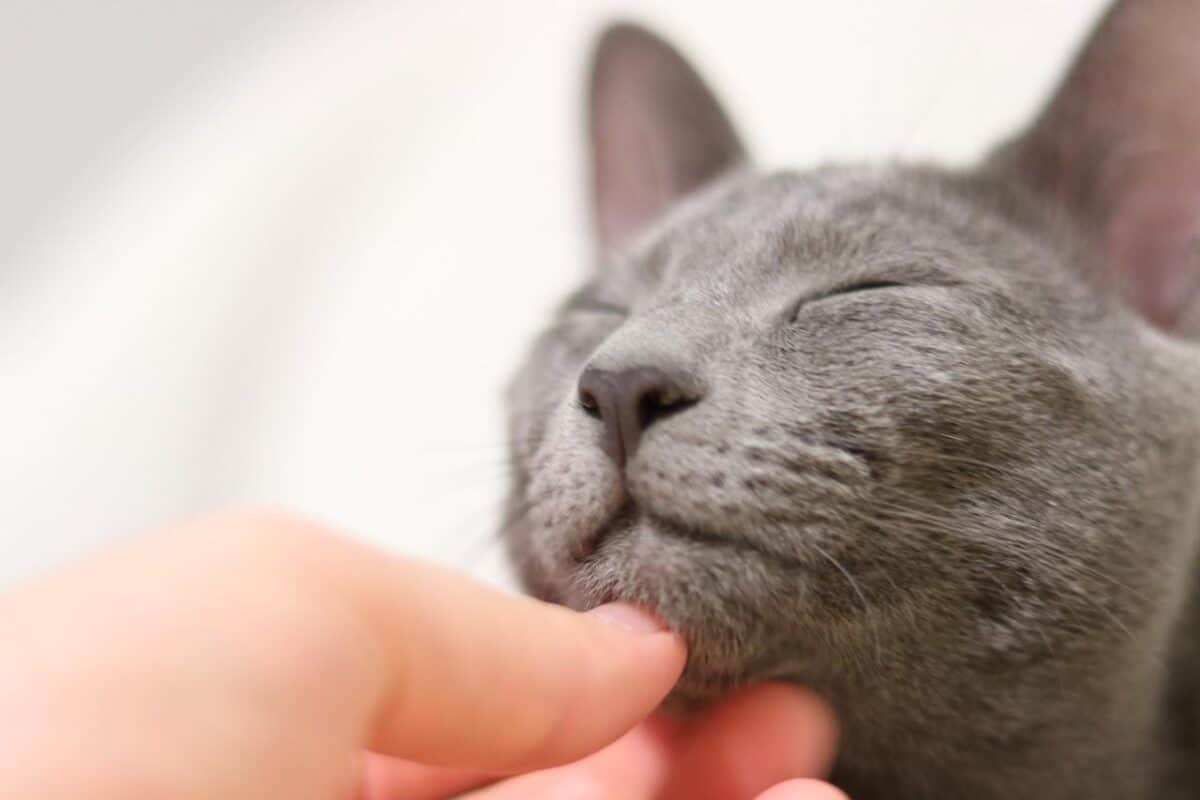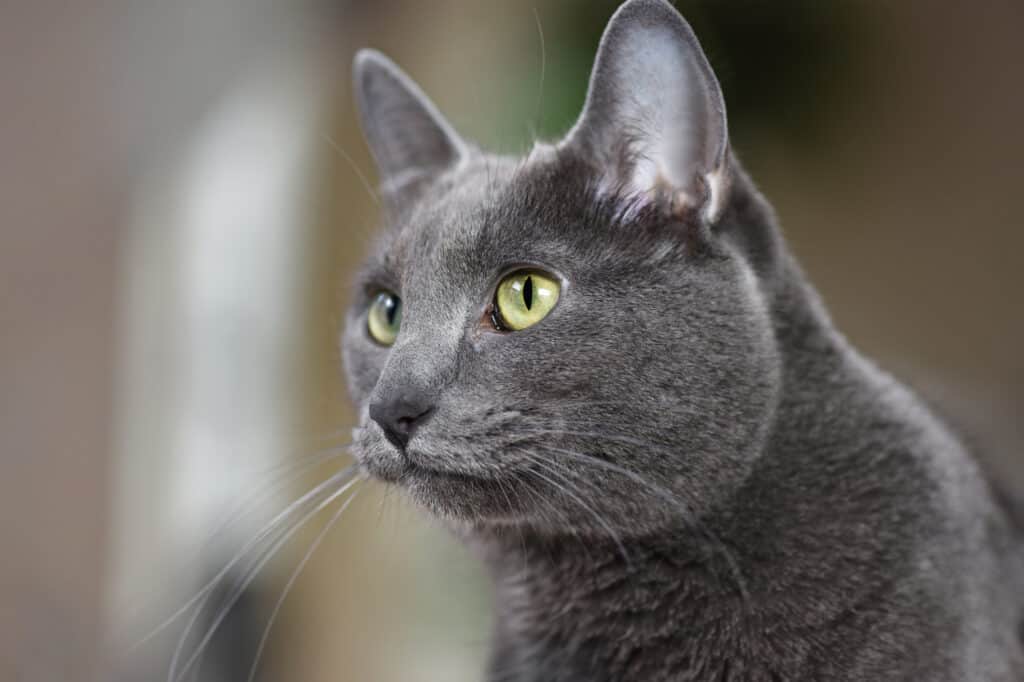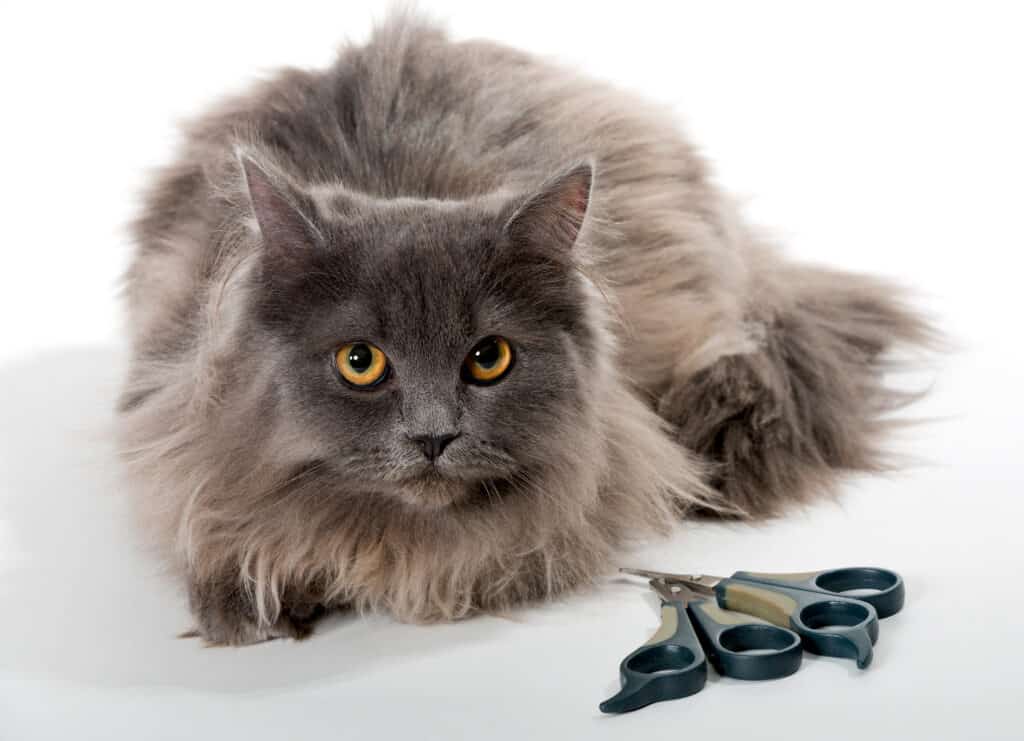Cats are cats, and cats meow. How much noise they make depends on their needs, health, habits, and breed.
Some people don’t mind a vocal breed, while others prefer quieter felines.
Russian Blue cats are known to be vocal, but in truth, many other breeds, including Siamese cats, are far more vocal. Some lists put Russian Blues in a quieter cat category. However, they can be loud when they want something.
The article below explains why your Russian Blue cat is trying to talk to you.
Vocal Cat Breeds
The Siamese cat ranks as the most vocal cat of all breeds.
Other highly vocal and loud cats include the Bengal cat, Ocicat, the Sphynx, Burmese cat, Oriental cat, Tonkinese cat, and both the Japanese and the American Bobtail cats.
Russian Blue cats fall in the same vocal category as Persians, Ragdolls, and Scottish Fold cats.
What Sounds Do Russian Blue Cats Make?
The sounds a Russian Blue makes depend on its age, the reason it’s meowing, and its environment.
Kittens have a gentle squeak to communicate with their mothers, which generally means it’s hungry, cold, or wants attention.
Adult cats will purr, meow, and even yowl. A yowl is a loud, long meow.
Some call it a cat scream and you’ll hear it during cat fighting and mating. Cats can also growl as a defense sound warning other animals to leave them alone.
This Russian Blue is hungry and meows very persistently to let his owner know.
Why Do Cats Meow?
It’s interesting that Russian Blue kittens that aren’t raised with human contact don’t meow a lot, if at all. Those who have constantly interacted with humans from an early age communicate the most.
Another interesting fact is that adult Russian Blues don’t meow at other felines as a normal routine.
They will growl or yowl but not meow. It appears their meows are solely for communicating with humans.
Do Russian Blues Understand Us?
No, your Russian Blue doesn’t know what you are saying but, like dogs, may connect certain words with specific things.
For instance, a Russian Blue will associate meals with the word “food” if you say “food” and then put their dinner in their dish.
The same with “treat,” “play,” and “out.” They will also learn their name and can be trained to come when you call it by name.
How do Russian Blues communicate?
Russian Blues are highly intelligent, so they learn how some words go with some things. Your cat can understand that you are trying to communicate even though they don’t know what you are saying.
They will meow to try their best to communicate back.
A Russian Blue, or any cat, will not understand you when you meow at them. To them, you are still making a human voice. However, when you get into the habit of speaking with your Russian Blue, you will notice they get a lot more talkative as well.
Emotional Inflection
Some cats can put emotional inflection into their vocalizations.
Whether it’s natural or an acquired skill isn’t fully known, but it could be they have been around humans so much they can, in a way, impersonate human inflection in emotion.
That means they can meow like they are laughing, crying, or even give their vocalizations a sense of anger or frustration. They may start softly but gradually get louder if their needs are ignored.
What Are Russian Blues Saying?
You can understand what your Russian Blue is trying to tell you with their meows by looking at his immediate needs.
Some Russian Blues will physically show you what they need by going to their dish or the door.
Here are some reasons they are trying to communicate with you.
- They want something.
- They seek attention
- They are greeting you are others
- They don’t like change.
- They have age or health-related problems.
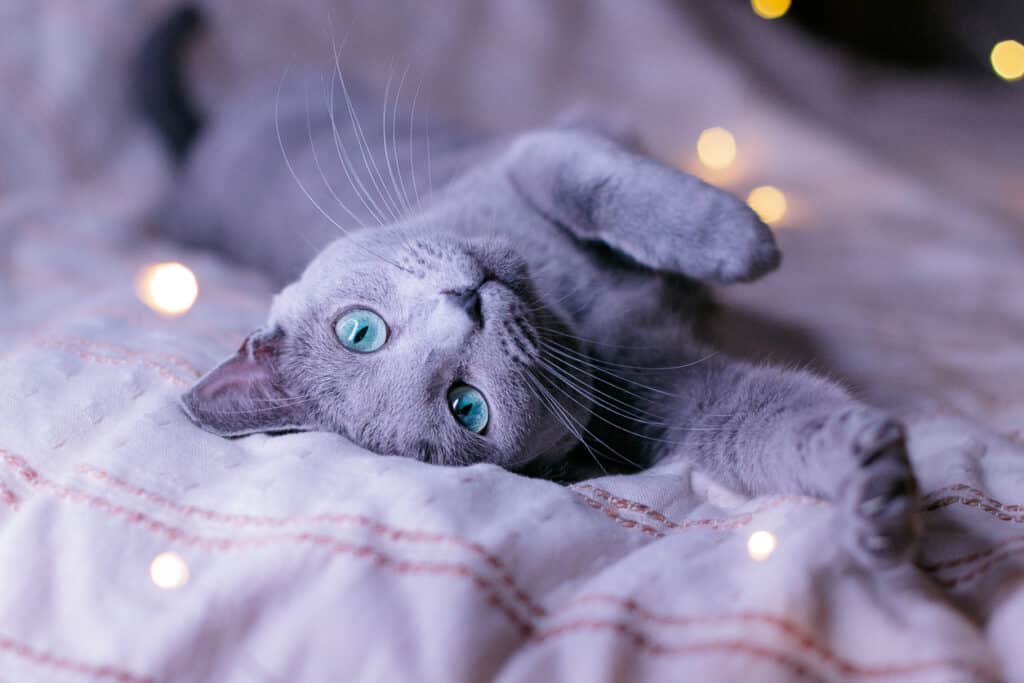
They Have Needs
A Russian Blue will be more talkative when it wants to tell you something. It could be to play, go out or eat. They will readily tell you to feed them when they are hungry.
Attention-Seekers
Russian Blues love their human companions and are incredibly affectionate.
They are highly social so they will want attention and will meow to get it. They can meow excessively if you continue to ignore them or leave them alone for a long time.
Greeting
Russian Blues love greeting people at the door. You will find they will greet you with multiple excited meows. However, they also like greeting others, very similar to a dog.
Changes
Russian Blues like routine and don’t always adjust well to change. They will vocalize more if you do something different like changing their cat litter, restricting them to inside when they are used to going out, or putting them in a restricted environment like a kennel.
Age and Health
Cats can have some of the same declines as humans as they age.
They can have cat dementia or other health issues. It could vocalize more when it becomes disoriented or has pain.
Take your cat to a veterinarian if it is vocalizing without an apparent reason.
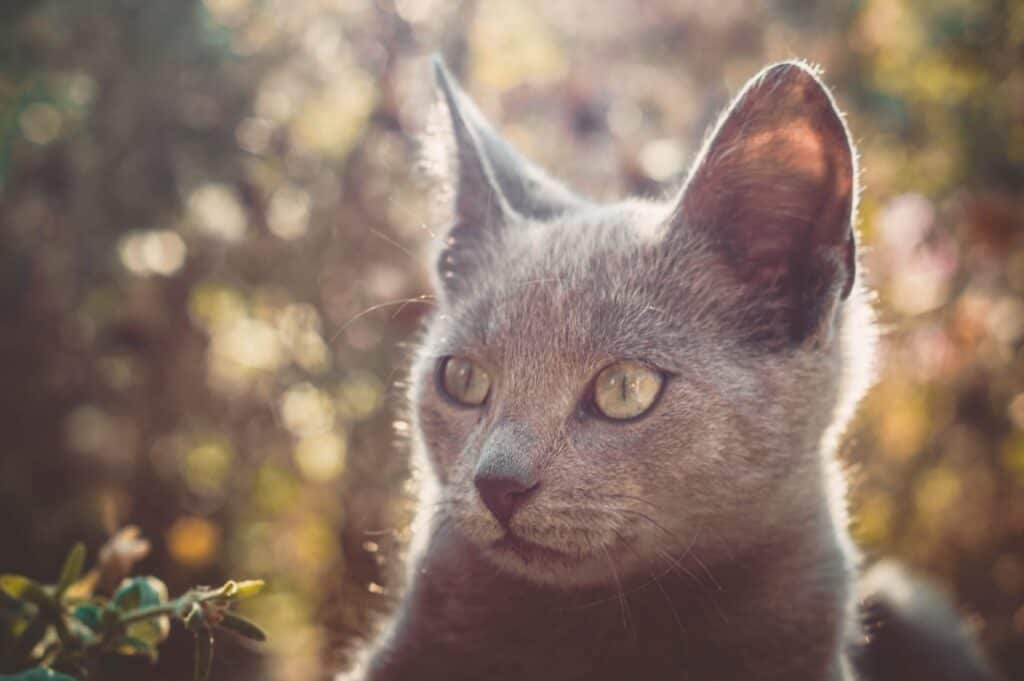
Night Meowing
Some cats, including Russian Blues, will vocalize more at night. This can be disturbing.
Cats are naturally more active at night. They are crepuscular, meaning they are naturally active from dusk to dawn. Most cats start hunting at this time so they meow.
The Urge To Find A Mate
They can feel trapped in the house and may vocalize their frustration. This is especially true for younger Russian Blues, particularly those that haven’t been spayed or neutered yet.
These cats will feel the urge to go out, especially at night, to explore and find a mate.
The best remedy is to get your cat neutered/spayed, reducing their drive to mate and giving you a better night’s rest.
Older Russian Blues are not as active during the night and will enjoy sleeping together with you on your bed instead.
Boredom
Another possibility is that your Russian Blue could also be bored and feel alone because the family is asleep and unable to play with them.
Your Russian Blue might still be full of energy and is not thinking about sleeping at all.
They may also not understand why the house is suddenly empty and quiet at night. In this case, having an evening routine for them might help.
Evening Routine
Remember, a cat that’s tired will not meow as much.
Most cats crave interaction with their humans from time to time. Especially a Russian Blue enjoys some attention from time to time. You will kill two birds with one stone by having some playtime in the evening.
You will spend some quality time with your pet while, at the same time, wearing them down a bit, so they prefer resting at night and giving you some shut-eye as well.
Playing with them about an hour before you plan to sleep should give them plenty of time to settle down when the family does.
Let your Russian Blue sleep in the bedroom with you if you don’t mind. Either cozy on your bed or in their own cat bed with you in the bedroom. By doing this, they will understand that nighttime is sleeping time.
The best thing you can do is create a steady routine for your Russian Blue. Once the routine is established, your Russian Blue will start sleeping when the family goes to bed.
Final Thoughts
A Russian Blue makes wonderful pets and wants to tell you what they need. You can understand their vocal communications by watching them, bonding with them, and paying close attention.
Has a Russian Blue stolen your heart, and are you considering adopting one? Have a look at All You Need To Know Before Adopting Russian Blue Cats.
Enjoy reading about cats?
Then you will love our other content. Have a look at our most popular articles.
-
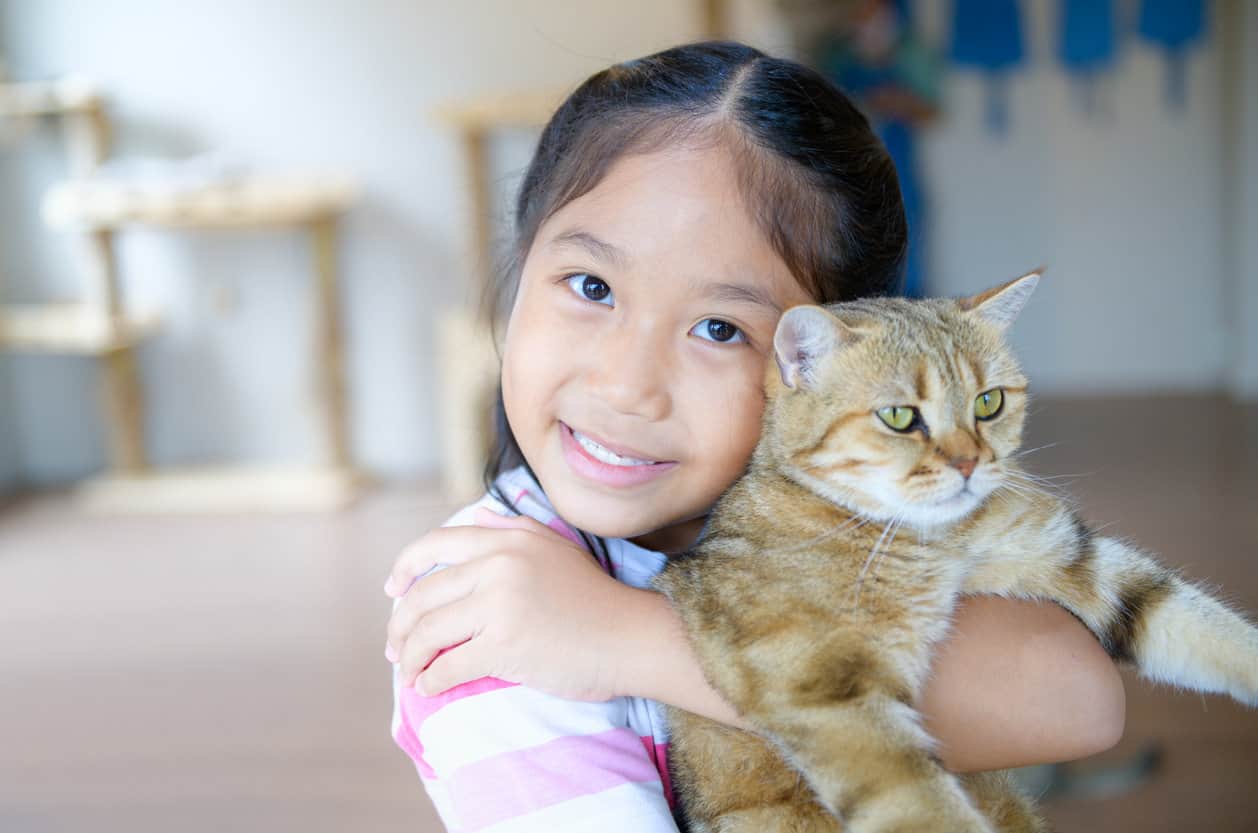
10 Ways to Make Your Cat Live Longer
The oldest cat to ever live passed away at the old age of 38. On average, household cats live between […]
-

12 Reasons Why Siamese Cats Cry at Night
Siamese cats are a popular breed of cats that many people choose to have as pets. Perhaps you have heard […]
-
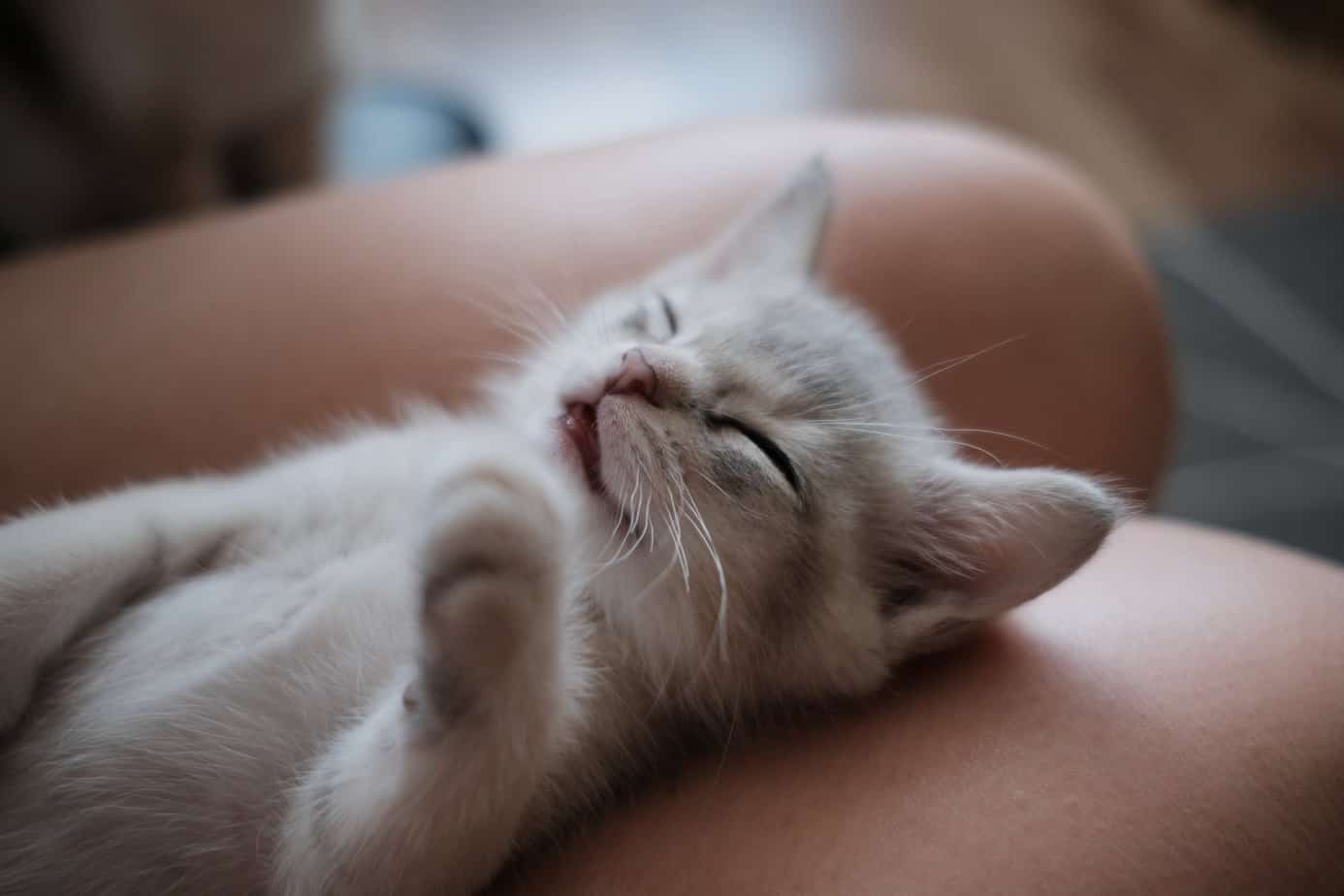
15 Incredible Ways That Cats Show Affection For Humans
Wondering how cats show their affection for humans? We have listed several incredible ways that cats are trying to show their love for us.
References
https://adventurouscat.com/do-russian-blue-cats-meow-a-lot/
https://myrussianblue.com/do-russian-blue-meows-a-lot/

